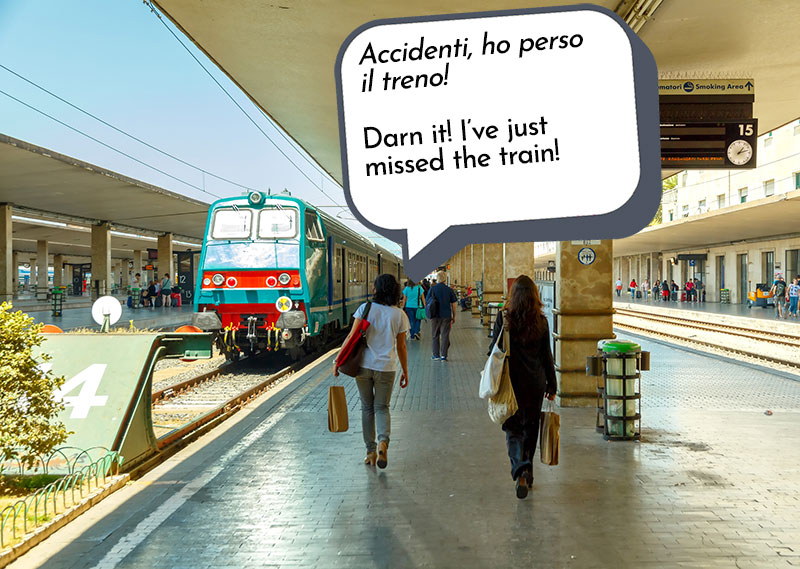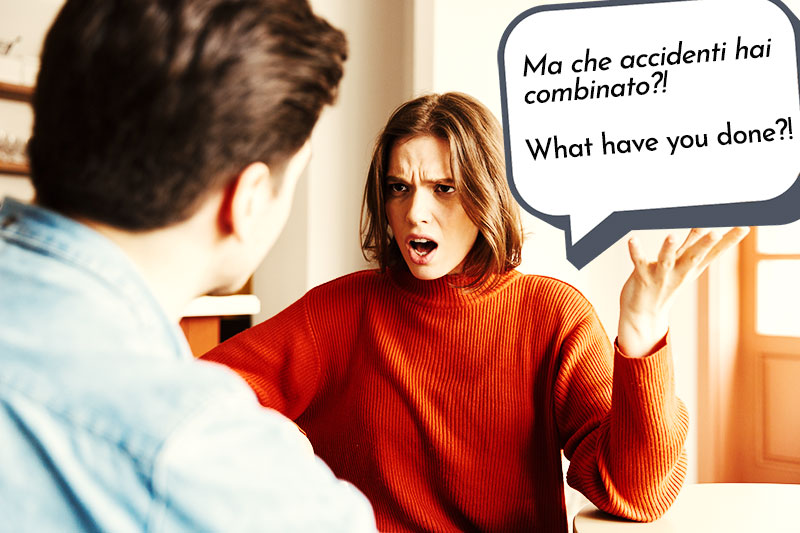Hands down, accidenti is one of the most common words we use. In truth, there is something in the very sound of it that helps release stress. That’s excluding all those words you’re better not saying out loud in front of your mother, of course.

A bit of history first. The word comes from the Latin verb accidere,which means “to fall on” something or someone. Grammatically, it is the plural or the noun accidente, in itself another interesting little word: originally, it had a neutral meaning and could be used to indicate any sort of event, but in time it acquired a pretty negative connotation so, if someone shouts ti venisse un accidente at you, they are not wishing you an eventful afternoon, but a rather awful one.

Our accidenti is not much different from its singular counterpart, but it has a wider array of meanings. Far from being a mere signifier for rage and negativity, it can also show surprise or regret, depending on the context it is used. As such, accidenti was recorded by linguists for the first time in the 19th century.

What counts the most, though, is that accidenti is a real lifesaver. Because it stands for so many emotions and feelings, it is very often used instead of a plethora of more colorful, but much less socially acceptable expressions, of which, however, we Italians remain particularly fond. It is the noble, politically correct cousin or the country’s rowdiest swear words.
But accidenti has also a good sense of humor because often, even when used to express disappointment, it shows your interlocutor may be actually only messing with you!
Accidenti, ho perso il treno!
Oh damn! I’ve just missed the train!
Accidenti, oggi sei bellissima!
Wow, today you’re gorgeous.
Ma che accidenti hai combinato?!
What have you done?!



























